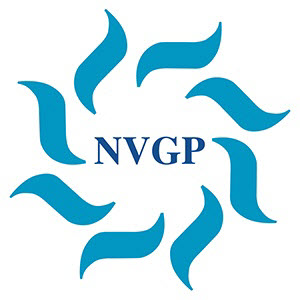Efficacy of Group Psychotherapy for Panic Disorder
Schwartze, D., Barkowski, S., Strauss, B., Burlingame, G. M., Barth, J., & Rosendahl, J. (2017). Efficacy of Group Psychotherapy for Panic Disorder: Meta-Analysis of Randomized, Controlled Trials. Group Dynamics: Theory, Research, and Practice, 27. Advance online publication.
Verslag: Ton Haans
Abstract
Among psychological treatments for panic disorder (PD) with or without agoraphobia, group therapy is an established and cost-effective treatment. The typical review assessing th effects of psychological treatments for PD merges findings from both individual and group formats. What is absent from the literature is a meta-analysis that separately summarizes the efficacy of group treatments. The present meta-analysis addresses this gap by estimating the efficacy of group psychotherapy for PD in adults using randomized, Controlled trials (RCTs). More specifically, studies that directly compared the effects of group psychotherapy with control groups or alternative treatments were included. We identified 15 RCTs that yielded 19 comparisons with 864 patients. In most studies, group therapy was based on a cognitive–behavioral approach. Outcomes assessing panic, agora- phobia, depression, and general anxiety symptoms were extracted and between-groups effect sizes (Hedges’ g) calculated using a random-effects model. Results showed large effects for group therapy reducing symptoms of panic and agoraphobia when compared with no-treatment control groups. However, no significant differences were found when group therapy was compared with alternative treatments. This review adds support for group psychotherapy (primarily cognitive–behavioral therapy, CBT) being one of several treatment options for PD. Results are discussed with respect to the positive effects of group therapy and the limits of group therapy when compared with alternative treatments such as individual therapy or pharmacotherapy
Wat betekent dit voor de groepspsychotherapie?
Een nieuwe meta studie van deze groep die eerder de verschillen onderzocht tussen individuele en groepstherapie voor een heterogene patiëntengroep, voor patiënten met sociale angst en obsessieve compulsieve stoornissen. (Zie links alhier). Dit onderzoek betreft patiënten met een paniek stoornis (PD). En is eveneens breed en serieus opgezet . Ook hier blijkt weer de werkzaamheid van, voornamelijk cognitieve groepstherapie. Groepstherapie is altijd beter dan niks doen (wachtlijst) en gelijkwaardig aan andere behandelingen zoals individuele therapie, farmacotherapie en ontspanning. Maar deze vergelijking betrof slechts zes studies, twee voor elk.
De auteurs concluderen dat groepsbehandeling makkelijker toegankelijk en goedkoper is dan individuele behandeling, en dat deze behandelvorm schaamte en stigmatisering zal verminderen. Bovendien leren groepsleden van elkaar en is de groep “a naturally occurring exposure environment for patients who fear having panic attacks in social situations” (p.13)
| Relevantie voor richtlijnen | O O O O O |
| Relevantie voor onderzoek | O O O O O |
| Relevantie voor groepsbehandeling | O O O O O |
| Relevantie voor teamcoaching | O O O O O |
| Relevantie voor groepsdynamicaopleiding | O O O O O |
| Relevantie voor groepstherapieopleiding | O O O O O |
| Relevantie voor KP opleiding | O O O O O |
